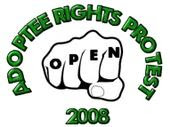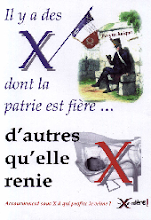 Comments
CommentsBERGEN RECORD
March 10, 2008
N.J. adoptees may get access to records
BY ELISE YOUNG
New Jersey adoptees, historically denied their full life stories, soon may gain access to their birth parents' medical histories and cultural backgrounds.
They also could learn the names and addresses of their birth mothers, even if those women once were guaranteed anonymity forever.
For some people, the prospect of unsealed records invokes unmitigated joy. For others -- some who had their babies decades ago, when out-of-wedlock births were a stigma -- the feeling is sheer terror.
"The truth is I can never have any real peace," one woman wrote lawmakers preparing to vote on the matter, "because now I never know whether a knock on the door or call on the phone will be his attempt at trying to intrude in my life against my repeatedly declared wishes to be left alone."
She submitted anonymous, written testimony and recalled the shame and fear of a high school pregnancy. When she gave up her son, she was assured they could meet in the future only if both agreed. More than 30 years later, the woman wrote, "my birth son ... is trying to hunt me down."
"This is really about identity and truth of a human being's existence," Darryl McDaniels -- better known as the rapper DMC -- told a state Senate committee when he testified about learning he was adopted. "I want my book to begin from Chapter 1 and not from Chapter 2."
Philip Foley of South Jersey testified on behalf of his wife, who as a teenager was raped, conceived and sent to a home for unwed mothers.
"She held on to the only comfort that she was offered -- promises that once her ordeal was over and adoption papers signed, her secret would never be revealed to anyone, ever," he said. For more than 30 years, he said, not even he knew.
Ten years ago, the child located her birth mother.
"I cannot describe the pain I saw on my wife's face when she was forced to tell me her secret as her world was falling apart," he said.
The state Senate approved the bill last week. If it gets support in the Assembly and is signed by Governor Corzine, adoption information could be available as early as next year. Information about all adoptees' pasts would be available, no matter how long ago they were given up and what promises were made to their birth mothers.
Maine, New Hampshire, Delaware, Tennessee, Alabama and Oregon have changed their laws to allow such access, according to the American Adoption Congress, a non-profit group that advocates for greater availability of birth records. Kansas never restricted such records to adoptees.
In New Jersey, activists have tried to unseal the state's adoption records for nearly 30 years, citing needs from the practical (concerns about genetic health conditions, for instance) to the philosophical (a curiosity about one's roots.).
For just as long, a coalition of opponents – including the American Civil Liberties Union and the New Jersey Catholic Conference -- have pushed back just as hard, chiefly arguing for rights to anonymity granted to birth parents.
Patrick Brannigan, executive director of the Catholic Conference, said the group -- whose members include the Archdiocese of Newark and the dioceses of Paterson, Metuchen and Trenton -- supports the release of medical information. But to disclose birth parents' names without their consent, he said, would be "a callous betrayal."
"A simple and fair approach would be a mutual-consent registry," he said.
But state Sen. Loretta Weinberg, D-Teaneck, said the bill takes birth mothers' concerns into account.
"We've made a great step forward to protect everyone in the system," Weinberg said.
Under the law, information now sealed by the courts would be accessible by adoptive parents, adoptees over 18 and the adoptees' children.
Shortly after birth, the biological mother would indicate how she wants to interact with the child in the years ahead: directly, through an intermediary or not at all.
The mother also would submit family information, including medical, cultural and social histories. Those details would be released to adoptees upon request. But the mother could stipulate that her name and contact information be withheld.
Birth mothers who gave up their children years ago would have to contact the state to indicate their preferences. Critics say such a requirement is risky: What if some women never learn about a change in the law? What about women who fear that contacting the state somehow would lead to mailings or phone calls from a government agency, which would tip off family members to an old secret? What if the birth mother's name were released accidentally?
"Our position is that a person should not have to opt out of having their name released," Brannigan said. "We always have said that we are supportive of reunions and of people finding out information about their heritage -- if it's of mutual consent."
State Sen. Bill Baroni, R-Mercer, who was adopted, said his vote to release the bill from the Health, Human Services and Senior Citizens Committee was one of the most difficult he ever cast.
"This is an imperfect compromise," Baroni said. "One some level you're dealing with contrasting values. You have promises made 20, 30, 40 years ago. And you have many adopted kids who have a real need to understand their past. This is not legislation that everyone is going to be happy with. It's incumbent on people like me to publicize the opt-out provision."
McDaniels, the rapper who was 35 when he learned he was adopted, recounted how a clerk denied him access to his birth certificate in New York State.
"She said, 'That don't exist' -- and this is what killed me -- 'to you,' " he said.
Eventually, McDaniels said, he reunited with his birth mother. But at 43, he said, he continues to reassure his adoptive parents that he considers them his family.
"I want to fix it so adoptees don't have to go through what I'm going through today," he said.
E-mail: younge@northjersey.com
Link to article








No comments:
Post a Comment